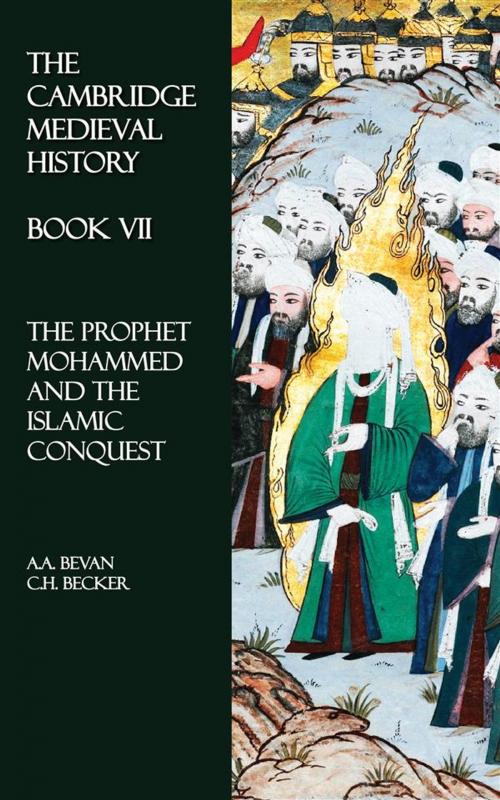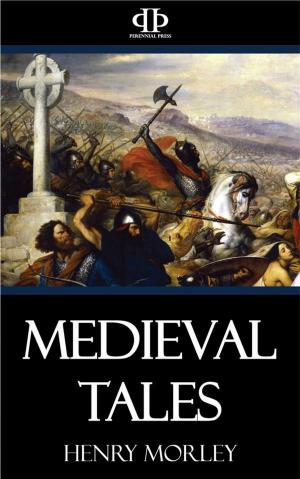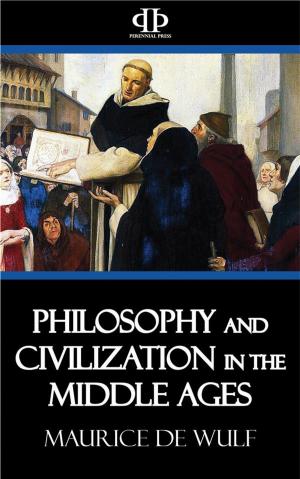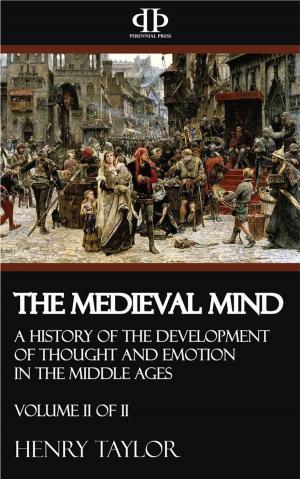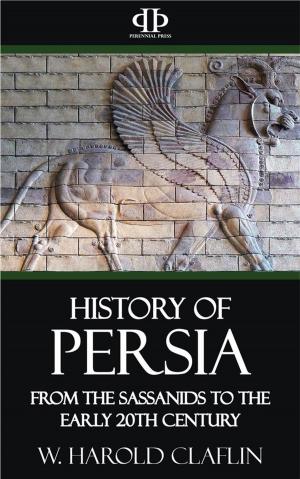The Cambridge Medieval History - Book VII
The Prophet Mohammed and the Islamic Conquest
Nonfiction, History, Medieval, World History| Author: | A.A. Bevan, C.H. Becker | ISBN: | 9781531233297 |
| Publisher: | Perennial Press | Publication: | February 25, 2016 |
| Imprint: | Language: | English |
| Author: | A.A. Bevan, C.H. Becker |
| ISBN: | 9781531233297 |
| Publisher: | Perennial Press |
| Publication: | February 25, 2016 |
| Imprint: | |
| Language: | English |
OUR knowledge of Mahomet, his life and his teaching, is derived entirely from documents which have been handed down by Muslims; no contemporary non-Muslim account is extant, and the testimony of later non-Muslim writers has as little claim to consideration as the statements in the Talmud concerning Christ. Among our authorities the Koran, for obvious reasons, occupies the foremost place. The pieces of which it is composed are acknowledged, alike by those who assert and by those who deny its supernatural character, to have been promulgated as divine revelations by the Founder of the religion himself, nor is there any ground for the supposition that the text underwent substantial change in later times. But although the authenticity of the Koran admits of no dispute its interpretation is involved in peculiar difficulties. It was not put together till about two years after Mahomet's death, and the arrangement of the chapters is wholly arbitrary, without regard to subject-matter or chronological sequence. Even a single chapter, as is recognized not only by modern European critics but also by all Muslim theologians of repute, sometimes consists of earlier and later fragments which were combined either by accident or through some mistake as to their import. Such mistakes were all the more likely to occur in consequence of the peculiarly allusive style in which the Koran is written; when it refers to contemporary persons or events, which is often the case, it seldom mentions them in explicit terms, but employs various circumlocutions. Hence it is impossible to explain the book without continually calling in the aid of Muslim tradition, as embodied in the works of theologians and historians, the earliest of whom lived some generations after the time of the Prophet. This literature is of enormous extent, but it contains many unintentional misrepresentations and many deliberate falsehoods. To separate the historical from the unhistorical elements is often difficult and sometimes impossible.
OUR knowledge of Mahomet, his life and his teaching, is derived entirely from documents which have been handed down by Muslims; no contemporary non-Muslim account is extant, and the testimony of later non-Muslim writers has as little claim to consideration as the statements in the Talmud concerning Christ. Among our authorities the Koran, for obvious reasons, occupies the foremost place. The pieces of which it is composed are acknowledged, alike by those who assert and by those who deny its supernatural character, to have been promulgated as divine revelations by the Founder of the religion himself, nor is there any ground for the supposition that the text underwent substantial change in later times. But although the authenticity of the Koran admits of no dispute its interpretation is involved in peculiar difficulties. It was not put together till about two years after Mahomet's death, and the arrangement of the chapters is wholly arbitrary, without regard to subject-matter or chronological sequence. Even a single chapter, as is recognized not only by modern European critics but also by all Muslim theologians of repute, sometimes consists of earlier and later fragments which were combined either by accident or through some mistake as to their import. Such mistakes were all the more likely to occur in consequence of the peculiarly allusive style in which the Koran is written; when it refers to contemporary persons or events, which is often the case, it seldom mentions them in explicit terms, but employs various circumlocutions. Hence it is impossible to explain the book without continually calling in the aid of Muslim tradition, as embodied in the works of theologians and historians, the earliest of whom lived some generations after the time of the Prophet. This literature is of enormous extent, but it contains many unintentional misrepresentations and many deliberate falsehoods. To separate the historical from the unhistorical elements is often difficult and sometimes impossible.
